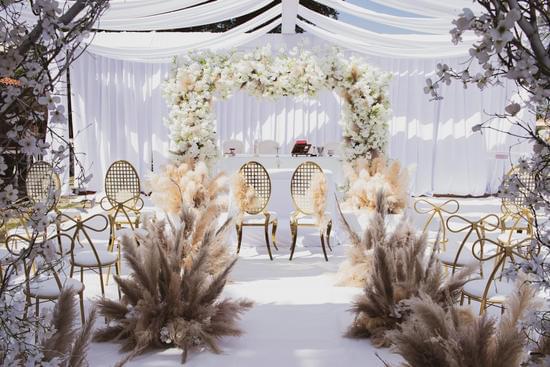Is having a wedding worth it? Many couples grapple with this question as they navigate the pressure of wedding culture. From financial considerations to the emotional toll of planning, there are numerous factors to consider when deciding whether or not to have a traditional wedding ceremony.
The decision to have a wedding is not always an easy one. With societal expectations and the influence of social media, couples often feel pressured to throw extravagant and expensive celebrations. However, it’s important for individuals to carefully weigh the pros and cons before committing to such a significant event in their lives.
In this article, we will explore the various aspects of having a wedding, including the financial considerations, emotional toll of planning, alternatives to traditional weddings, the importance of celebrating love and commitment, as well as the long-term benefits of investing in a wedding. By examining these factors, couples can gain insight into whether or not having a wedding is truly worth it for them.
The Financial Considerations of Having a Wedding
When it comes to having a wedding, one of the biggest factors that couples need to consider is the financial aspect. Getting married is a significant life event and often involves a substantial investment. Here are some key financial considerations to keep in mind when planning a wedding:
- Budget: Setting a budget for your wedding is essential to avoid overspending and financial stress. Determine how much you are willing and able to spend on the venue, catering, attire, decorations, and other expenses. Creating a detailed budget will help you prioritize your spending and make informed decisions.
- Expenses: Weddings come with various expenses, including venue rental fees, food and beverages, floral arrangements, photography services, attire for the bride and groom, entertainment, and more. It’s important to research and obtain quotes from different vendors to understand the costs involved.
- Saving Strategies: Some couples choose to save money for their wedding by cutting back on non-essential expenses or seeking out more affordable options. For example, DIY decorations or opting for an off-peak season wedding can help reduce costs without compromising on the overall experience.
Ultimately, deciding whether having a wedding is worth it from a financial perspective depends on your priorities and values as a couple. While weddings can be expensive, many people view them as an investment in celebrating their love and commitment to each other. By carefully considering the financial aspects of getting married, you can make informed decisions that align with your preferences and resources.
The Emotional Toll of Wedding Planning
Impact on Mental Health
Many couples who are in the midst of planning their wedding may find themselves experiencing a significant amount of stress and anxiety. The pressure to create the perfect day, combined with expectations from family and society, can take a toll on one’s mental health.
The emotions tied to wedding planning can lead to sleepless nights, tension in relationships, and even symptoms of depression and anxiety. It’s important for couples to recognize the emotional toll that wedding planning can take and to prioritize their mental well-being throughout the process.
Managing Expectations
One of the biggest emotional challenges of wedding planning is managing the expectations of others. Family members, friends, and even vendors may have their own visions for the big day, adding an extra layer of stress for the couple. Navigating these conflicting expectations while staying true to one’s own desires can be emotionally taxing. Learning how to communicate effectively, set boundaries, and make compromises can help alleviate some of the emotional strain associated with wedding planning.
Self-Care During Wedding Planning
The emotional toll of wedding planning should not be underestimated. It’s important for couples to prioritize their mental health throughout this process by setting boundaries, managing expectations, and practicing self-care. By doing so, they can navigate the highs and lows of wedding planning while maintaining their emotional well-being.
The Importance of Celebrating Love and Commitment
When considering whether having a wedding is worth it, one must not overlook the importance of celebrating love and commitment. A wedding is not just an extravagant party, but a meaningful and symbolic ceremony that marks the beginning of a couple’s journey together. Here are some reasons why celebrating love and commitment through a wedding is valuable:
- Symbolism: A wedding symbolizes the union of two individuals who have chosen to spend their lives together. It serves as a public declaration of love and commitment, not only to each other but also to their families and friends.
- Tradition: Throughout history, weddings have been an integral part of almost every culture. They are steeped in tradition and serve as a rite of passage for couples. From the exchange of vows to the throwing of the bouquet, weddings are rich in symbolism and customs that celebrate love and unity.
- Memories: A wedding provides an opportunity for couples to create lasting memories with their loved ones. It is a day filled with joy, laughter, and celebration that will be remembered for years to come.
Despite the financial considerations and emotional toll that may come with planning a wedding, it is important to recognize the significance of celebrating love and commitment through this time-honored tradition. The symbolic value, tradition, and memories made during this special occasion are all factors that contribute to making it worthwhile.
Alternatives to Traditional Weddings
As couples begin to question whether having a traditional wedding is worth it, many are turning to alternative options to celebrate their love and commitment. One popular alternative is a destination wedding. This allows couples to have a smaller, more intimate ceremony in a beautiful location, often with only close family and friends in attendance.
According to a study by The Knot, 1 in 4 couples chooses a destination wedding. This option not only reduces the stress of planning a large event, but it also provides an opportunity for the couple and their guests to enjoy a vacation together.
Another alternative gaining popularity is eloping. While it was once considered taboo, eloping has evolved into an intentional choice for many couples. Eloping allows for an intimate ceremony with just the couple or a few close witnesses present. In addition to reducing stress and cost, eloping can provide couples with the opportunity to focus solely on each other and their commitment without the distractions of a large event.
Virtual weddings are also becoming more common as technology continues to advance. With virtual weddings, couples can exchange vows and celebrate with loved ones from anywhere in the world via livestreaming services. This option not only eliminates the need for extensive travel and venue costs but also allows couples to include those who may not have been able to attend an in-person event.
| Alternative Wedding Option | Key Benefit |
|---|---|
| Destination Wedding | Reduced stress of planning; opportunity for vacation |
| Eloping | Intimate ceremony; focus on commitment |
| Virtual Wedding | Inclusion of distant loved ones; cost-effective |
The Joy of Wedding Traditions and Ceremonies
The Symbolism of Wedding Traditions
From the exchanging of rings to the lighting of unity candles, wedding traditions are rich with symbolism that represents the couple’s love, commitment, and hopes for the future. These rituals not only celebrate the union of two individuals but also honor the values and beliefs that are important to them. Each tradition holds a unique meaning that adds emotional depth and significance to the wedding ceremony.
Cultural Customs
Different cultures have their own set of customs and rituals that make weddings special and meaningful. Whether it’s a traditional tea ceremony in Chinese culture or a jumping of the broom in African American culture, these customs connect couples to their heritage and create a sense of belonging. In many cases, incorporating these cultural traditions can strengthen family ties, promote inclusivity, and deepen respect for differing backgrounds.
Ceremonial Celebrations
The actual wedding ceremony is often a deeply moving experience for couples as they publicly declare their love and commitment to each other. The exchange of vows and promises serves as a profound expression of devotion, while the support and well wishes from friends and family members strengthen bonds within the community. Furthermore, ceremonies provide an opportunity for couples to express themselves creatively by personalizing their vows or incorporating unique elements into their nuptials.
The Long-Term Benefits of Investing in a Wedding
A wedding is often seen as a significant financial investment, but many couples may not realize the long-term benefits that come with it. One of the main advantages of investing in a wedding is the sense of commitment and unity that it can bring to a relationship. The act of planning and celebrating a wedding can strengthen the bond between partners and create lasting memories that will be cherished for years to come.
In addition to emotional benefits, weddings can also have practical advantages for couples. Marriage provides legal and financial protections for spouses, such as tax benefits, inheritance rights, and access to healthcare coverage. By investing in a wedding, couples are not only making a public declaration of their love and commitment but also gaining important rights and privileges as spouses.
Furthermore, weddings can have positive social impacts on couples’ relationships with family and friends. A wedding is a significant milestone that brings loved ones together to celebrate the union of two people. As a result, weddings can help strengthen existing relationships and create new connections within both partners’ social circles. This support system can be invaluable throughout the married couple’s lives, providing them with emotional and practical support when needed.
| Benefits of Investing in a Wedding | Details |
|---|---|
| Stronger Commitment | A wedding can strengthen the bond between partners through the process of planning and celebrating together. |
| Legal and Financial Protections | Marriage offers legal benefits such as tax advantages, inheritance rights, and access to healthcare coverage. |
| Social Impact | Weddings bring families and friends together, strengthening existing relationships and creating new connections within social circles. |
Finding the Right Balance
In conclusion, the decision to have a wedding is not one that should be taken lightly. The pressure of wedding culture can lead many couples to feel like they must adhere to certain expectations, which can result in financial strain and emotional stress. However, it’s important to weigh the costs and benefits of having a wedding, and ultimately decide what is best for you as a couple.
While the financial considerations of having a wedding can be daunting, it’s important to remember that celebrating love and commitment is a significant milestone in life. Many couples find joy in carrying out wedding traditions and ceremonies that hold special meaning to them. These moments create lasting memories and bring families together, making the investment in a wedding worthwhile.
Additionally, investing in a wedding can have long-term benefits for a relationship. The act of planning and celebrating a marriage can strengthen the bond between partners, creating a solid foundation for their future together. Ultimately, finding the right balance between fulfilling your desires for your special day and staying within your means is crucial in making your wedding worth it.
So, is having a wedding worth it? It depends on what you value most as a couple – but for many, the answer is yes.
Frequently Asked Questions
Is It Worth It to Pay for a Wedding?
Whether it’s worth it to pay for a wedding ultimately depends on the priorities and financial situation of the couple. Some may see the value in celebrating with a lavish event, while others may prefer a more intimate or budget-friendly affair.
It’s important for couples to consider their values, goals, and resources when deciding on the type of wedding they want to have.
How Important Is It to Have a Wedding?
The importance of having a wedding varies from person to person. For some, a wedding is a significant way to celebrate and solidify their commitment to each other in front of family and friends.
It can also be seen as an opportunity to honor cultural or religious traditions. However, for others, the legal marriage itself is what truly matters, and they may choose not to have a traditional wedding ceremony.
Is It Okay Not to Have a Wedding?
It is absolutely okay not to have a wedding if that is what feels right for the couple. There are many reasons why someone might choose not to have a traditional wedding, including personal preference, financial considerations, or simply not wanting the stress and pressure that can come with planning such an event.
Ultimately, what’s most important is that the couple feels comfortable with their decision and is able to begin their marriage in a way that suits them best.

I have been involved in marriages for over 20 years helping couples and singles understand more about them.





